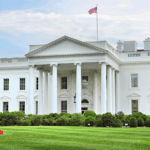You know the truth is facing an uphill battle when you can’t get past the first few words of the article you’re reading without encountering something misleading, inaccurate or just plain dishonest.
That was true in a pair of news stories published last week by western Washington newspapers about the Freedom Foundation’s role in the soon-to-be issued Janus ruling and the anticipated impact on the state’s public-sector unions when the U.S. Supreme Court makes the entire country a right-to-work state.
On May 11, for example, the News-Tribune’s website posted an article in which literally the first image the reader sees on the page – even before the headline – is the words “Unions fighting back against labor pushback” superimposed over a photo of an AFSCME rally.
The impetus behindJanusis many things, however, but in no way is it a pushback against labor. It isn’t even a pushback against unions, per se.
It’s a pushback against laws that abridge workers’ First Amendment rights by making union membership mandatory in the workplace, but not against the workers themselves.
By any objective standard, in fact, those fighting to preserve the workers’ rights to make up their own minds are on the pro-labor side of the argument, not those determined to suppress them.
Nonetheless, in clear attempt to immediately establish in the reader’s mind the proper order of things, the article, headlined “Washington public unions fight to retain influence in face of adverse court ruling,” starts off with a six-paragraph account from a teachers’ union organizer nostalgically reminiscing about the days when “everyone signed their membership form and it was great.”
As far as we know, the author didn’t solicit differing opinions from forcibly unionized teachers whose memories of having to choose between free speech and keeping their job were somewhat less rosy.
Most egregiously, though, the article includes a lengthy analysis of the extent to which the unions – and by extension, their allies on the political left – will be damaged financially when millions of workers across the country are empowered to make their own decisions about workplace representation. The inference is that political power is the Freedom Foundation’s true end game and Janusis merely a weapon we’re wielding to give conservatives an advantage.
Nowhere is it made clear that, under the present arrangement, unions already enjoy the huge advantage of being able to bankroll liberal candidates and causes with an almost unlimited supply of someone else’s money while conservatives are limited to those who actually agree with their positions and donate willingly.
The war over right-to-work isn’t just the normal intramural scrimmaging between right and left; it’s a long-overdue step to balance the scales and thereby right a monstrous wrong that’s skewed political outcomes at every level for generations.
Meanwhile, even more suggestive was the headline above a May 13 article in The Columbian, “Will the court break public-sector unions?”
Although the ensuing article offers a more or less balanced presentation – even including comments from Battle Ground caregiver Calvin Ravencraft, whose family’s lengthy battle to leave SEIU were chronicled in a Freedom Foundation video – the headline has already led the reader astray.
Despite the unions’ best efforts to portray themselves as the well-intended victim of a vast rightwing conspiracy fronted by the Freedom Foundation, it’s manifestly true that even the most catastrophic ruling possible (from their standpoint, that is) in Janus would still do absolutely nothing to make union membership illegal or even more difficult.
Every worker will still have the right to organize and bargain collectively. The only change is that those who choose a different option won’t lose their jobs.
Yet the article does nothing to highlight that point.
Both articles went to great lengths to represent both sides of this contentious and complicated debate. Unfortunately, that’s the whole problem with them.
The issue of right-to-work isn’t complicated at all. Absent the unions’ pettifogging, it’s a matter of simple fairness.











